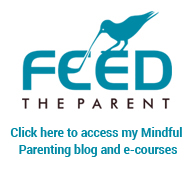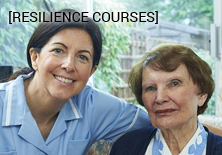Mindfulness FAQ
1. What is Mindfulness?
Mindfulness is the skill of being aware of the present moment and all that’s going on inside and outside of our mind and body. The skill of being present brings us into contact with what’s going on right here and now instead of spending our time lost in memories of the past, or planning for the future, or just constantly judging and analyzing our current life. All this thinking not only wastes a lot of energy, it means we aren’t making the most of the potential of our present life, including our relationships, favourite pastimes, connecting to nature, or doing meaningful work to the best of our capacity.
Many people’s minds habitually get stuck in either past or future thinking (or a bit of both). Some people constantly worry about what might happen in the future and many want to feel more in control of what might happen and so continually plan and try to preempt every possible thing that might go wrong. Fearing what might happen all the time is a recipe for anxiety. And needing to be in control can also result in stress and anxiety when things don’t go as planned.
Other people tend to get stuck in the past, dwelling on past regrets and how they could have done things better or trying to fix things that have already happened. Yet others see the past as the best days of their lives, which means the present is never good enough.
Either of these habitual tendencies takes us away from living fully in the present moment and all the potential joys and experiences that can offer. It also often keeps us trapped in unhealthy states of mind like worry, regret, fear or dissatisfaction.
Being an observer of our mind and body gives us the space and clearer perspective to make wiser and more compassionate choices, rather than just reacting habitually (unconsciously) to everything.
2. How does meditation fit with this?
Meditation is the practice of mindfulness and concentration where we set aside some uninterrupted time to do nothing but sit and be present with our breath, body and the contents of our mind. This could be anywhere from 5 minutes to an hour or more.
Mindfulness is a skill that needs to be practiced, just like learning to play the piano, chess or tennis. Everyday mindfulness activities (like mindful eating or listening) can help build the skill, but meditation is where we get to have long stretches of focused practice of our concentration and awareness skills. Of course the other huge benefit of meditation is that it’s time out to calm our mind and body and give ourselves that deep rest we need in this busy world.
3. What are the benefits of doing mindfulness and meditation practices?
There is a vast amount of research into mindfulness and meditation especially since the practice came to the health and psychology world in the 1990s. It can be used for benefits in so many areas of life as this non-exhaustive list of benefits shows:
Work
Mindfulness practice can help improve concentration, effectiveness, creativity and innovation, and relationships with co-workers, and can reduce stress at work, and increase productivity. Harvard University research has shown that, on average, people's minds tend to be wandering 47% of the time - this is a huge loss to productivity when at work! Mindfulness meditation is the best tool to help train your mind to focus and stick to the task at hand.
Physical Health
Mindfulness practice has been shown to have numerous health benefits including: improved sleep; reduced blood pressure; reduction in chronic pain and fatigue; better immunity; slowing the ageing process. It is also successfully used in weight loss and addiction treatments.
Mental Health, Spirituality and Happiness
Mindfulness has been very successful in reducing depression relapse, treating anxiety, panic attacks, eating disorders and addictions; and helping to manage difficult emotions, grief, conflict and major life changes. Ongoing mindfulness practice tends to lead to greater well-being and happiness, and this can be associated with a greater spiritual dimension in life.
Read this great article by Dr Craig Hassed from Monash University introducing mindfulness and the extensive research-backed benefits of practice.
4. What is the difference between mindfulness and meditation?
Mindfulness is the skill of being aware of the present moment and all that is going on inside and outside of our mind and body. Being an observer of our mind and body gives us the space and clearer perspective to make wiser and more compassionate choices, rather than just reacting habitually (unconsciously). Mindfulness is a skill that needs to be practiced, just like learning any skill like playing the piano, chess or tennis. Everyday mindfulness activities can help build the skill, but really meditation is where we get to have long stretches of uninterrupted time to practice our concentration and awareness skills. Of course the other huge benefit of meditation is that it’s time out to calm our mind and body and give ourselves that deep rest we need in this busy world.
5. Is this a spiritual or religious practice?
Of course, mindfulness has been around for centuries and is a central part of many spiritual traditions, most notably Buddhism. The modern secular (non-religious) mindfulness movement has tended to focus on mindfulness for its health, mental health and performance benefits. But mindfulness in a spiritual or religious context also tends to sit within a moral or ethical framework as well, which some people believe is lacking in secular mindfulness. So it’s up to those who are teaching mindfulness to try to give some context to ensure it also leads to a happier and healthy society, not just the individual. See our section on making a Better World here.
6. What happens at your courses and workshops – what do we do?
Our courses and workshops are experiential so they involve lots of guided sitting and lying down meditations, walking meditation, mindful movement (yoga), mindful eating and much more. We also do some group and pair discussion to make sure you also understand the ideas behind what we are doing – and this is a chance to learn mindful listening too!
7. Do I need to sit on the ground cross-legged?
No definitely not. All our venues have chairs and we usually also offer floor cushions so you can choose where you want to sit. We help you to sit comfortably wherever you choose to sit. Our sessions always involve a mix of sitting, lying down, walking and standing activities so you can change your position regularly too.
8. What do I wear to the sessions? What do I bring?
It’s best to wear loose, comfortable clothing so that you can sit and lie down comfortably plus we do some gentle mindful movement (yoga) so you need to be free to move your body a bit. If you feel the cold you might like to bring a wrap or blanket to keep warm. Other than that you usually don’t need to bring anything to the sessions, everything is provided.
9. For the 6 Week courses, what is the home practice between sessions all about? What time commitment is involved?
We ask that everyone who signs up to our multi-session courses (we usually run 6 session courses) is able to commit to doing some home meditation and mindfulness practice each day. We give you guided meditations on a CD (or online via Dropbox) and you can listen and meditate to these once per day. We start you off with 10 minutes per day and build up to around 20-30 minutes per day of practice. It’s good to schedule this into your day and try to do it at a regular time and place each day. In addition to this we ask you to do brief daily informal mindfulness activities, which take just a few minutes. These are just done at suitable moments during your day when the opportunity or need arises.
10. How do I get one of these courses offered in my workplace?
If you are keen to have us come and run a course for you and your colleagues at work, the Learning and Development part of your company or organisation usually needs to be on board in order to find the budget for the course. So please get in touch with us and we would be happy to provide a course proposal and a budget for your workplace. To inquire, email Suzie Brown.




